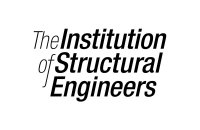Temporary Vehicle Restraint Systems (TVRS) are crucial for ensuring safety on highways and bridges during temporary works. This course aims to provide a comprehensive understanding of the need for assessing temporary hazards and the use of TVRS. Key topics include:
- Understanding TVRS: Learn what TVRS are and their importance in maintaining safety.
- Testing and Approval: Explore the testing processes and approval criteria for TVRS elements.
- Performance and Utilisation: Consider performance criteria, specifications, and how to utilise TVRS in various environments.
- Design and Compliance: Understand the use of relaxations and departures in designing TVRS layouts and ensuring compliance with highway standards.
By attending this course, you’ll gain valuable insights into the benefits, limitations, and issues related to TVRS, enhancing your ability to proactively deploy these systems on highways.
Aims & Objectives:
- To understand the need for an Assessment of Need of Temporary Hazards
- To have an understanding of the use of RRRAP within temporary works
- The use of Appendix 4/1
- To have an understanding of EN1317-2, -3 & -4
- To have an understanding of installation constraints
- To understand the benefits, limitations and issues related to the use of TVRS
Course Outline:
- What is TVRS
- Testing of TVRS elements and their approval for use
- Consideration of performance criteria, specification and utilisation in a given environment.
- The use of Relaxations and Departures when designing TVRS layouts
- Highway Standards and TVRS compliance
- The Hierarchy of Control
- Cost vs. Risk
- Temporary Hazards RRRAP (T-RRRAP)
- Common Details
- T-RRRAP Assessment
- R-RRRAP Output
Mode of Delivery:
This course will be delivered remotely via MS Teams, hosted by SMA. The primary method of delivery will be via PowerPoint with interactive discussions and examples.
Benefits of Attending:
- To have an improved understanding for the proactive use TVRS on Highways.
- To have an understanding of both the benefits and limitations of TVRS.
Intended For:
Personnel evaluating the need for TVRS to be deployed in a proactive manner.
Pre-Course Requirements:
It is advantageous, but it is not essential, for attendees to have a basic knowledge of CDM, Temporary traffic management and temporary highway works.








